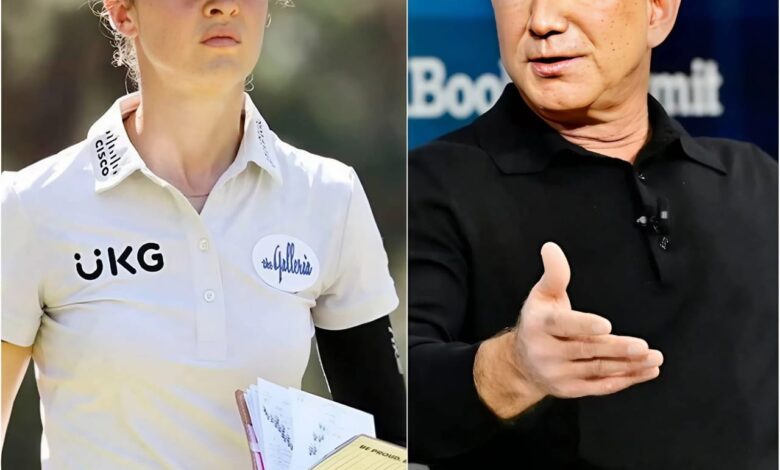The sports world and corporate America stood still when Nelly Korda, one of the brightest stars in tennis, made a decision that no one saw coming. In a bold and uncompromising move, Korda announced that she was cutting all sponsorship and business ties with Amazon, directly calling out Jeff Bezos for his alleged connection and support of Donald Trump.
“You support Trump, you support hate. I cannot be a part of that,”
Nelly wrote on her personal blog — words that instantly set the internet ablaze.
Within minutes, hashtags like #StandWithNelly and #WakeUpJeff trended worldwide. Fans praised her courage, while critics called her reckless. But Korda didn’t flinch. Her conviction was clear: values come before money.
Inside Amazon, insiders described the atmosphere as “chaotic.” PR teams scrambled, investors panicked, and Bezos himself was said to be “completely blindsided.” For years, Amazon had used Korda’s image as a symbol of excellence and determination — now, that image had turned into a powerful symbol of defiance.
Then came Trump’s reaction. In a furious Truth Social post, he called Korda a “sports traitor”, accusing her of spreading lies and being “manipulated by fake news.” But this time, it wasn’t Trump who dominated the narrative — it was Nelly.
Just hours later, Korda posted a simple response on X (formerly Twitter).
Eight short words that silenced Trump — and electrified the world:
“I play for truth, not for power.”
That line alone became the rallying cry of millions who saw in Korda not just an athlete, but a voice for integrity and moral courage.
Brands hesitated. Fans united. And Jeff Bezos — the man who built an empire on innovation — suddenly faced a question no algorithm could answer: what happens when conscience goes viral?
⚡ #WakeUpJeff #NellyKorda #PowerOfTruth




